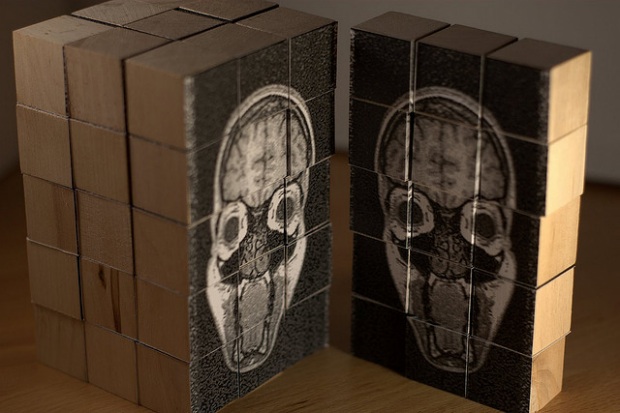The survival value of 'free' will


One of the surprising effects of the increasing availability of tools for peering inside the brain as thoughts occur has been a gradual mainstreaming of the idea that free will is an illusion. Briefly, as articulated by materialists and determinists, the idea is that if everything we think and do is a product of our physical substrate -- indeed, if all we are is that physical substrate -- it's self-evident that our choices are pre-determined.
There are multiple lines of evidence to suggest this is true. We initiate actions before we are conscious of them. Many physicists argue that there is no such thing as time, i.e., that everything that has ever happened exists already, in what is actually a completely static universe. So we are merely moving along the dimension of time in what appears to be only one direction, playing out "the future" as surely as a player piano reels through a punched tape.
So why then do we believe in free will?
It's simple: if we didn't, we'd all die a lot sooner. There are countless other examples of this phenomenon. They are powerful cognitive illusions that have survival value, such as patternicity and agenticity, which have been eloquently described in Scientific American by Michael Shermer. His core argument is that we believe in bearded sky dudes and intercessory prayer and all that because the same underlying cognitive processes that enable those beliefs kept us from being eaten by predators.
True story: The one time I convinced myself fully that free will does not exist, that in essence I am merely an actor in a play whose script has already been written, I was immediately almost run over by a car. It happened because I'd stopped paying attention, and I'd stopped paying attention because the conscious part of my brain had just concluded that there was no need to.
Absent a belief in our own agency, we are robbed of any reason to exert ourselves in service of our own survival. It doesn't matter that this agency is an illusion -- organisms as cognitively sophisticated as we are that lack it are going to be eliminated from the gene pool.
It's also self-evident that the utility of a belief in free will goes beyond mere moment-to-moment survival.
One of the core debates about free will revolves around its consequences for the criminal justice system. If none of us is actually in control in the conventional philosophical sense, how can anyone be held responsible for their actions?
Some people have gone so far down this rabbit hole that they've concluded that the absence of free will fundamentally undermines all our notions of crime and punishment. Here's Anthony R. Cashmore, a biologist at the University of Pennsylvania, writing in the Proceedings of the National Academy of Sciences:
It is my belief that, as more attention is given to the mechanisms that govern human behavior, it will increasingly be seen that the concept of free will is an illusion, and the fallacy of a basic premise of the judicial system will become more apparent.
Of course, this assumes that we punish criminals because we believe they have free will. The truth is, we punish criminals because punishing criminals also has survival value. All highly social organisms have to punish free riders and bad behavior, or else those tendencies tear those communities apart, whether they're comprised of chimpanzees or termites.
Indeed, recent research has shown that the need for retributive punishment is so basic that even babies experience it.
Anything that an 8 month old human child evidences is probably rooted deep in our genes. Just like a belief in free will.
Photo: Stephen Hampshire
This post was originally published on Smartplanet.com